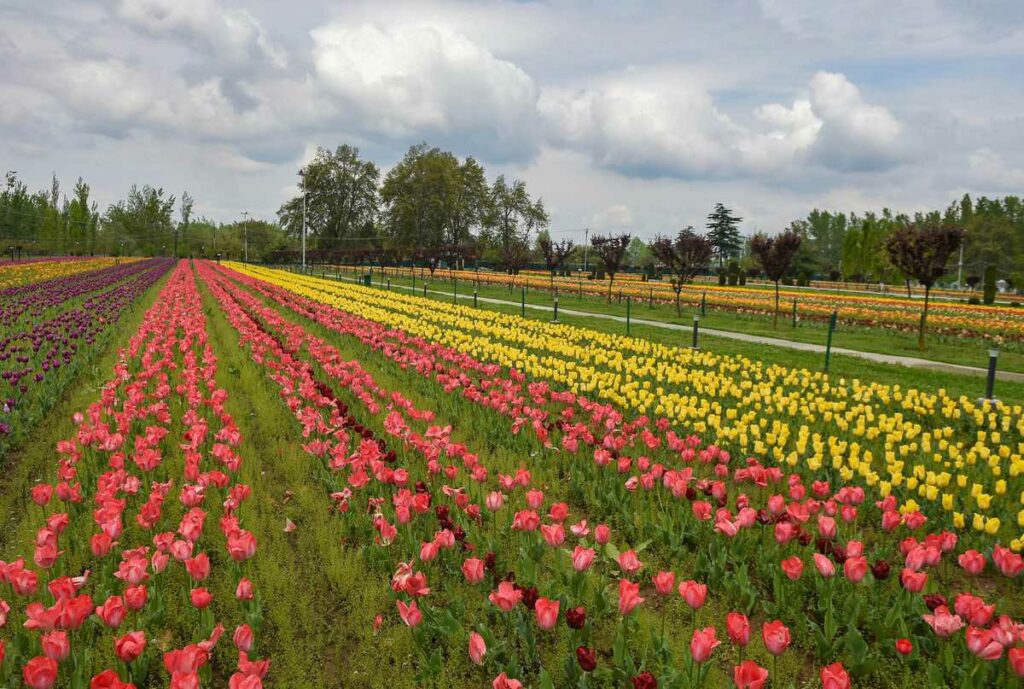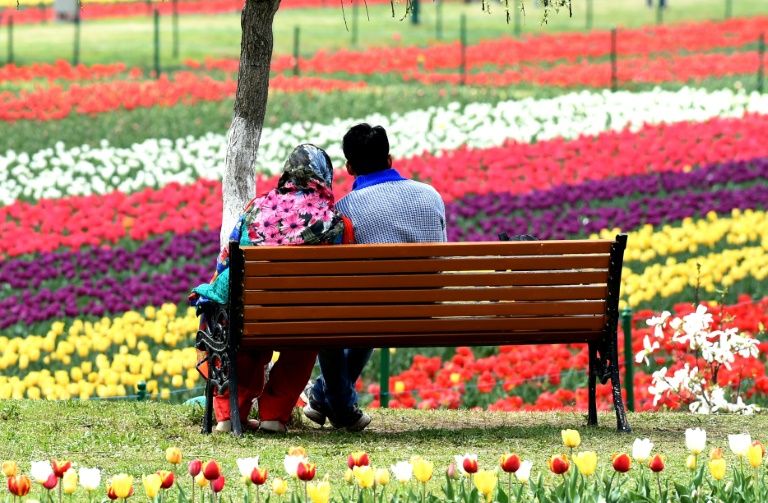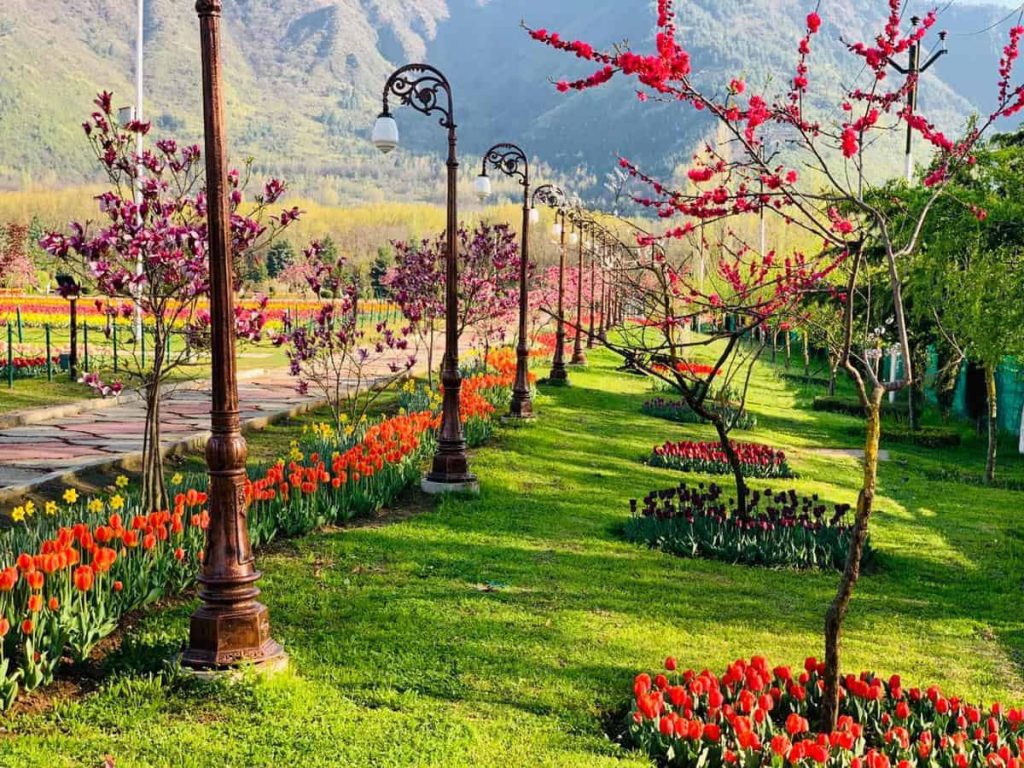Srinagar: Faisal Shafi (32), a local, made several requests to a gatekeeper to let him enter inside the Indira Gandhi Memorial Tulip Garden. His pleas however fell on deaf ears. “I cannot let you or anyone else enter inside the garden. Please visit after the 25th of March,” was the security personnel’s response, while Shafi was peeping through a small space adjacent to the gate.
Shafi and his friends were not alone making repeated pleas to gatekeepers at the Tulip Garden. Dozens of tourists, who are currently visiting the Kashmir valley, also desired to see the place, which is Asia’s largest tulip garden. They however had to instead return dejected, and left after boarded their vehicles in disappointment.

Located on the foothills of Zabarwan range, with an overview of the Dal lake in Jammu and Kashmir’s Srinagar, the Tulip Garden this year will welcome its visitors with the blossom and the fragrance of 1.5 million flowers. “It takes one complete year to prepare this garden,” says Mushtaq Ahmad Mir, a landscaper, posted in the garden ever since it was inaugurated by former chief minister of Jammu and Kashmir Ghulam Nabi Azad in 2007.
“It takes our blood and sweat to present the beauty of these flowers before the world, right from harvest to bloom,” says Mir. “People generally believe that this garden is prepared in a month or two, but the reality is that we don’t get time to rest once the bloom is over,” he adds.
The Tulip garden blossom this year, Mir says, took extra efforts from its caretakers to bring out the colourful flowers before the audience because of heavy snowfall. “We had to clear accumulated snow from the flowerbeds, which consist of five strips with a length of 250 ft each, and then hoe the soil so that tulip bulbs don’t get spoilt,” he says.

Shayiq Rasool, in-charge deputy director of the state’s Floriculture Department, told Siasat.com that the garden’s beauty is the outcome of the efforts of 110 employees which include gardeners, casual labours, electricians and other staff. “All the people associated with the garden contribute to the best of their ability,” Rasool says, adding that he calls gardeners and casual labourers the backbone of the Indira Gandhi Memorial Tulip Garden.
This year, the bloom is expected to happen in the last week of the March, as the sun-sensitive flower requires the temperature to be above 15 degrees to spread its petals to its full capacity. “Apart from tulips, the department has also introduced Ornamental Cherry Trees—also known as Sekiyama—on the pathway of the garden and in coming years they will be seen at different location of the garden premises,” says Rasool adding that around 4 lakh tulips bulbs have been brought from Holland.

In spite of hardwork, casual labourers toil without job security
The bloom usually lasts for a month and is immediately followed by the cultivation of tulip bulbs from the soil. “Cultivation is a hectic process and it starts from May to the last week of July,” says Javaid Ahmad Ganie, a casual labourer who says he earns around Rs 7,000 a month. “Later on, the flowerbeds are ploughed and the soil’s fertilization is done. The beds are then covered with polythene sheets until the sowing starts from the last week of November, until February 10,” he explains.
Ganie points out that that every employee associated with Tulip garden puts their blood and sweat into it, but people like him are the ones who don’t get anything in return. “Most of the money that I earn is spent on the bus fare as I come from the Tral area of south Kashmir, which is around 50 kilometres away from tulip garden,” he says.
“Tell me what amount shall I save and what amount shall I spend on my family? We have been asking the government to regularise our jobs but no one listens to us,” Ganie laments, saying that casual labourers who come from far-off places have repeatedly requested the Director of Floriculture Department to transfer them to the nearby station, but in vain.
When Siasat.com brought this grievance of daily wagers to Rasool, he said that regularizing daily wagers was beyond the capacity of the UT department’s officers. “It is a decision that the government has to take,” he informed.

